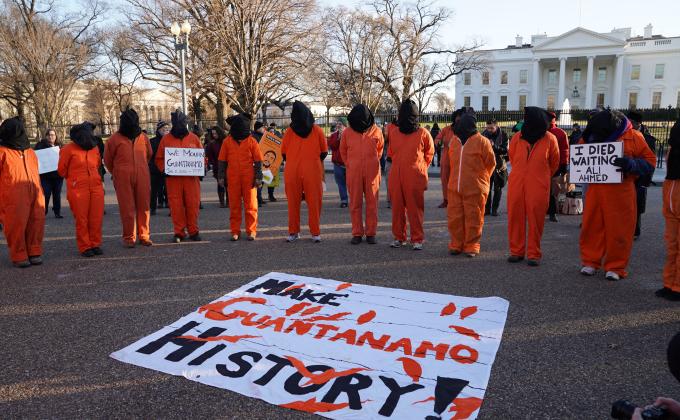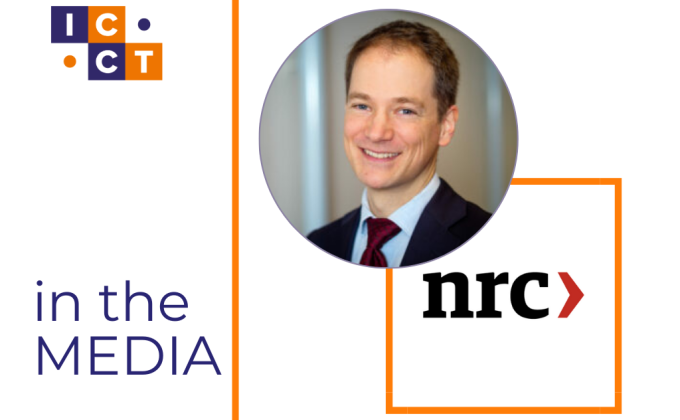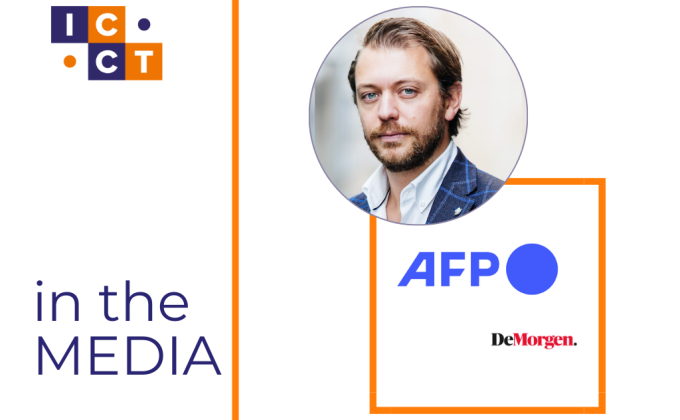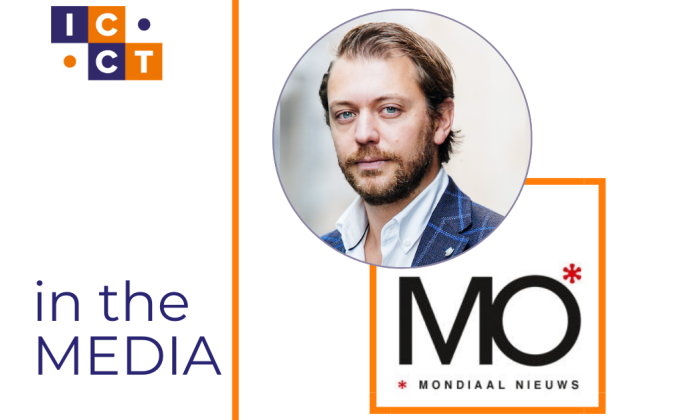Hardi N. once said about himself "I am a believer, but not a radical". That view was not shared by the AIVD (the Dutch General Intelligence and Security Service) and the Dutch National Police. Hardi was arrested in late 2014 for attempting to travel to Syria and subsequently convicted. After serving a short prison sentence, he was given help to get his life back on track, which proved unsuccessful. Hardi reappeared in September of last year, when he turned out to be the central figure of the so-called ‘Arnhem group’, who were spectacularly arrested just before they planned to carry out a major attack. The Dutch authorities were able to keep sight of and control over Hardi and the group, in part by relying on undercover agents and listening devices. In that way, The Netherlands was spared from an attack. This oversight was put in place as evidence amassed that Hardi had not abandoned his jihadist intentions. At that point, a thorough assessment was made to determine what was necessary in this case to keep an eye on him, including a particularly close collaboration between the Dutch intelligence and police organisations, as well as the deployment of special legal and operational measures.
This is how the Netherlands tackles terrorism and extremism: by taking a case-by-case approach, and determining the optimal intervention strategy to reduce threat levels. Selecting an appropriate intervention for each case is the best way to guarantee our safety. This Dutch approach has been praised for years by international experts in the field of counter-terrorism.
But when it comes to the return of IS fighters, politicians do not seem to want to consider a case-by-case approach. For some time now, the Dutch government has maintained an absolute and hardly pragmatic policy line: no active assistance is ever offered to Dutch foreign terrorist fighters (FTFs) to return to the Netherlands from jihad areas. But why, in these cases, do we refrain from considering the best intervention per individual?
Trump is right
This question is all the more pressing now that Donald Trump has called on Europe to repatriate over eight hundred imprisoned IS fighters. If not, the American president stated, they will be released and disappear from the radar. The majority of these IS fighters are currently being held in Kurdish camps, and their numbers are growing. The day after Trumps statement, the US Department of Foreign Affairs announced that it would repatriate American IS fighters and try them on US territory. Spokesperson Robert Palladino called this "the best way to prevent them from returning to the battlefield." Trump is right. If we do nothing we will lose control over many of these FTFs. Eventually, some of them will resurface in Europe - unnoticed, because we have lost sight of them.
So what can we do? Moreover, what are other European countries doing? No European country seems inclined to change their current policy on returnees following Trump's statements. However, Belgium, Germany and France have already abandoned their policy of not actively assisting their return earlier; Belgium is preparing the return of young IS children without their mothers; Germany states that in principle all German nationals have the right to return, including suspected IS fighters, and France has indicated that it wants to repatriate French IS fighters.
In the Netherlands, a large majority of the House of Representatives still opposes the idea of repatriating FTFs. In response to Trump’s remarks, the ruling party CDA stated that Syria travelers have chosen themselves to break with the rule of law. Coalition party VVD believes that trials by the Assad regime are more appropriate for FTFs than returning to the Netherlands – even though the Netherlands no longer maintains diplomatic ties with the Syrian regime. Coalition party ChristenUnie indicates that retrieving FTFs is a major risk, but also states that we need to assess on an individual basis whether it is safe and responsible to bring these people back to the Netherlands. The formal governments’ response is not surprising: The Netherlands still refuses to actively contribute to the return of Dutch jihadists from Syria and Iraq. Minister Sigrid Kaag put it briefly and absolutely "A policy change is out of the question".
Only D66 party leader Rob Jetten, like Trump, stated that "we must prevent IS fighters from traveling without us keeping sight of them. If they return under the radar, this would absolutely be insensible from a security perspective."
Insensible and dangerous
Indeed, insensible but above all very dangerous. These jihadists, often hardened, have spent a long time in the IS caliphate. Many have witnessed or perpetrated excessive violence, can handle weapons and explosives and often hold a grudge against the West. They are responsible for their actions and are generally legally competent. Almost all of them knew where they were heading: towards a terrorist and genocidal organization.
These dangerous, ideologically indoctrinated, hardened fighters can pose a serious threat. They may have plans to commit attacks in the West: either because they want to do so themselves or because they are instructed by IS. They have the skills and contacts to cross borders unseen. The Netherlands can strip them of their nationality or take away their passport - this will not prevent fighters from entering the country undetected if they want to.
One does not want to be surprised by these types of individuals. As outlined by Trump, a scenario in which that could happen, is not only conceivable as a result of the actions of the United States. The entire situation in Syria and Iraq is unstable and unpredictable. The Kurdish camps where the FTFs reside are in the middle of this unstable area. An additional question is whether the Kurds will want to continue to look after our fighters in the coming years.
The aim of Dutch counter-terrorism policy is to prevent attacks by creating a situation in which intelligence and police organisations have proper sight on and are in control of the threat, which allows for timely intervention. However, this fundamental objective is barely reflected by the reactions of Dutch politicians. Instead, they come up with elaborate ideas such as the establishment of an international tribunal for the prosecutions of FTFs.
Commitment to prosecuting war crimes and genocide by establishing a UN tribunal is certainly a good idea, but it cannot be the only answer to a pressing and urgent security issue. We simply cannot afford to go through the lengthy motions of a political or diplomatic process. Neither can we hide from a reality that requires difficult and courageous political choices, namely to take matters into our own hands.
Looking at each individual case
But is this truly difficult? Perhaps it requires that the Dutch cabinet goes back on its word that no active assistance in repatriating FTFs is offered. Paradoxically though, going back on these words is actually not a policy change. On the contrary, it would be a logical continuation of the firmly established policy line. After all, the Dutch approach to countering terrorism is based on choosing an appropriate intervention on a case-by-case basis whenever a threat arises. This line should be continued in the case of Dutch FTFs in Syria and Iraq. If it would be possible to make choices on a case-by-case basis, it could, for instance, be decided to repatriate someone under strict control when this is sensible from a security perspective. For example, when a particular individual would otherwise disappear from the radar. The individual would then be arrested on arrival for questioning and prosecuted if possible.
If it is not possible to convict an individual but they continue to pose a threat, Dutch intelligence and police services have the ability to monitor returned FTFs. This would allow them to intervene if a known jihadist plans to commit an attack.
Prosecution is not always the only or most effective way to prevent attacks. Attacks can also be prevented in another way - the AIVD and the police play a major role in this regard. The AIVD monitors and, if there is reason to intervene, hands over the baton to the police. Sometimes the AIVD and the police work together during the monitoring phase, as was recently witnessed when a jihadist network in Arnhem was apprehended. A well-timed intervention was carried out to prevent an attack and simultaneously gather sufficient evidence to start prosecuting the network.
In short, we can deal with returnees, even if we cannot put them behind bars and even if they want to commit an attack. The Dutch counter-terrorism approach, based on case-by-case assessments of what to do, has proved successful in several cases and is the best way to keep sight of and control over potential terrorists. So the Dutch can rely on their system - the same system that they are so proud of at other times.









